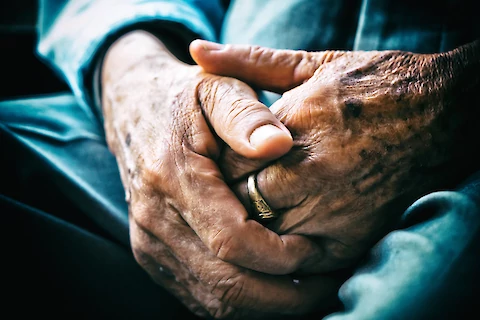
We are approaching the shorter, darker days of winter, which can be tough for everyone, but especially for seniors because of seasonal affected disorder or SAD. The lack of sunlight and increased isolation can lead to feelings of sadness, loneliness, and even depression. But there is hope! There are things that seniors can do to combat these feelings and stay positive through the winter months.
Seasonal Affective Disorder-What Is It?
SAD or Seasonal affective disorder is a form of depression that occurs at the same time each year. Most often, SAD starts in the fall as the days begin to get shorter and continues into the winter months. While SAD can occur at any age, it is most common in young adults and senior citizens.
What Are the Symptoms of SAD?
The symptoms of seasonal affected disorder vary from person to person, but there are some common signs to look out for. If you or a loved one are experiencing any of the following symptoms, it may be time to seek help from a doctor or mental health professional.
- Feeling down or low most of the day, nearly every day
- Losing interest in activities that you used to enjoy
- Feeling tired or having little energy throughout the day
- Sleeping more than usual or having difficulty sleeping
- Changes in appetite or weight
- Feeling hopeless or helpless
- Experiencing difficulty concentrating on tasks
- Having frequent thoughts of death or suicide
- Easily irritable or grouchy
What Causes Seasonal Affected Disorder?
The exact cause of SAD is unknown, but there are some theories about what may contribute to the disorder. One theory is that the change in seasons affects the level of serotonin, a chemical in the brain that plays a role in mood. A decrease in sunlight may also disrupt the body's natural sleep-wake cycle, leading to feelings of fatigue and low energy.
How Can Seniors Combat SAD?
There are a few things that seniors can do to help themselves feel better during the winter months.
Exercise
Exercise is a great way to combat SAD because it releases endorphins, which have mood-boosting properties. It doesn't have to be too strenuous; even a daily stroll around the neighborhood can make a big difference.
Connect With Loved Ones
As we get older, it's natural for our social circles to shrink. But that doesn't mean that we don't still need human interaction. Seniors suffering from the seasonal affected disorder may benefit from increasing their social interactions, even if it's just spending more time talking on the phone or sending letters through the mail. Additionally, many senior centers offer social activities like painting classes, book clubs, and group outings—so there are plenty of opportunities to meet new friends!
Seek Help From a Professional
If you've tried all of these tips and you're still feeling down, it may be time to consult with a doctor or mental health professional about your options. They may suggest light therapy, which involves sitting near a special light box for 30 minutes daily, or prescribe medication if necessary. Don't suffer in silence; help is available!
Contact Senior Helpers
As we head into the colder months, it's important to be aware of seasonal affective disorder (SAD), especially in seniors. At Senior Helpers Chicago/Evanston, we understand the importance of mental health and want to help you or your loved ones combat seasonal affected disorder this winter. We offer custom care plans designed to meet each client's unique needs in Chicago, Cook County, and IL. Contact us, Senior Helpers Chicago/Evanston, if you or a loved one is in need of assistance this winter.